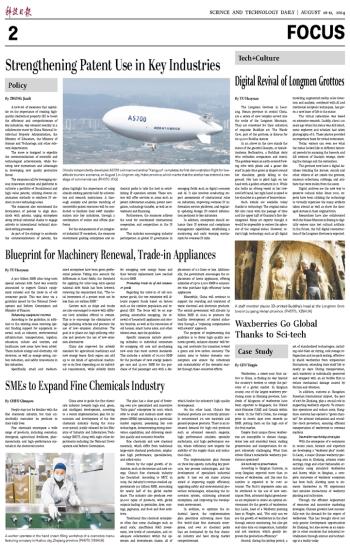
A 300 billion RMB ultra-long-term special national debt fund was recently announced to support China's equipment renewal and the trade-in of old consumer goods. This was done via a guideline issued by the National Development and Reform Commission and Ministry of Finance.
Enhancing equipment renewal
According to the guideline, in addition to the existing areas receiving special funding support for equipment renewal, such as industry, environmental infrastructure, transportation, logistics, education, culture and tourism, and healthcare, new areas have been added. These include energy and electricity, old elevators, as well as energy-saving, carbon reduction, and safety renovations in key industries.
Specifically, small and medium-sized enterprises have been given preferential policies. Taking into account the differences in their fields, the threshold for applying for ultra-long-term special national debt funds has been lowered, removing the requirement that, "The total investment of a project must not be less than 100 million RMB."
Carriers such as ships and trucks are also encouraged to renew with different level subsidies offered to owners. This is to encourage the elimination of high-polluting vehicles and promote the use of low-emission alternatives. The goal is to phase out high-polluting vehicles and promote the use of low-emission alternatives.
China also improved the subsidy standard for agricultural machinery and new energy buses. Each region can add up to six kinds of agricultural machinery to its fleet depending on its individual requirements, while subsidy limits for scrapping new energy buses and their battery replacement have reached 60,000 RMB.
Promoting trade-in of old consumer goods
Regarding the trade-in of old consumer goods, the two ministries will allocate support funds based on factors such as the resident population and regional GDP. The focus will be on supporting automobile scrapping, the renewal of household appliances and electric bicycles, as well as the renovation of old houses, smart home sales, and other related areas, says the guideline.
Specific measures include providing subsidies to individual consumers for scrapping old cars and purchasing new ones that meet current standards. This includes a subsidy of 20,000 RMB for the purchase of new energy passenger cars and 15,000 RMB for the purchase of fuel passenger cars with a displacement of 2.0 liters or less. Additionally, the government encourages the replacement of home appliances, offering subsidies of up to 2,000 RMB to consumers who purchase high-efficiency home appliances.
Meanwhile, China will continue to support the recycling and treatment of waste electrical and electronic products. The central government will allocate 7.5 billion RMB in 2024 to promote the healthy development of related industries through a "replacing compensation with awards" approach.
The purpose of implementing this guideline is to foster high-quality economic growth, enhance citizens' well-being, and accelerate the transition toward a green and low-carbon economy. The nation aims to bolster domestic consumption and ensure the robustness and sustainability of the domestic market through these concerted efforts.


 Next
Next




